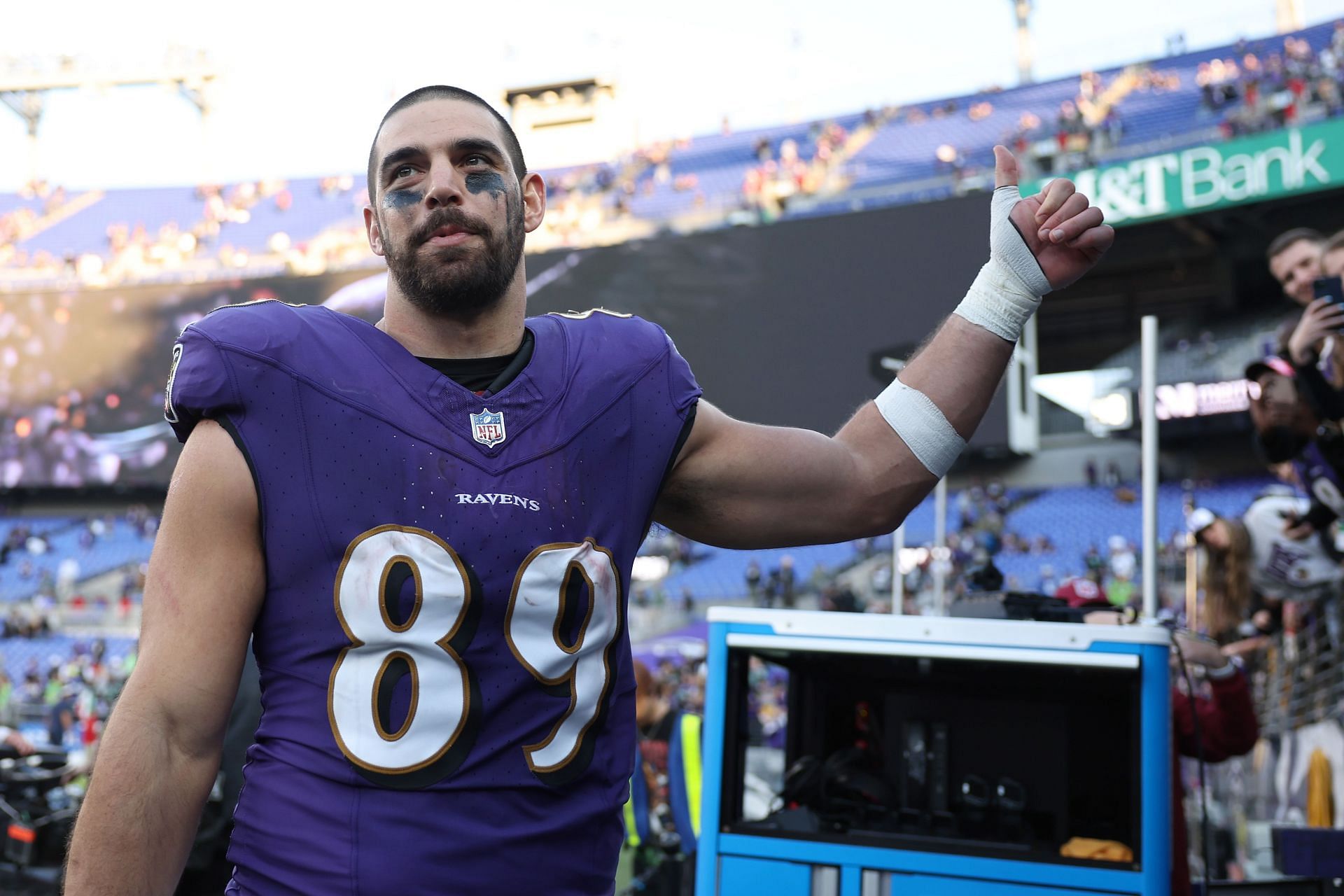
Ravens star Mark Andrews' heroic effort on plane helped save a woman's life: Report
Baltimore Ravens tight end Mark Andrews' quick thinking helped him save the life of a fellow passenger on an airplane. On Thursday, Andrews boarded a Southwest Airlines flight from Baltimore to his home in Phoenix, where he spends the offseason.
During the flight, a female passenger suffered a medical emergency. Her pulse was weak, and she had trouble breathing. There were medical personnel on board, and as they were trying to treat the woman, Andrews, who is a Type 1 Diabetic, offered his blood sugar kit to test her.
The medical personnel were able to use the kit to help stabilize the woman until the plane landed. She was then transported to receive further care. Her condition is unknown. The events that transpired were told by a fellow passenger on the flight, Andrew Springs, who was amazed by Mark Andrews' actions and the others involved.
Springs also noted that, when the plane landed and the passengers were permitted to exit, Mark Andrews walked off the flight just like everyone else, and no extra attention was given.
Andrews was diagnosed with Type 1 Diabetes when he was just nine years old. He has never let the diagnosis stop him from pursuing his football career and has used his platform to become a spokesperson and advocate for childhood diabetes.
Ravens TE Mark Andrews releases statement after coming to passenger's aid
Mark Andrews may be hailed a hero for his recent actions in an emergency situation. However, the Baltimore Ravens tight end is giving credit to the others who helped the passenger, which includes a doctor and a nurse who were on board.
Andrews released a statement through the Baltimore Ravens, documenting the events that transpired:
"In addition to the fast-acting flight attendants, the real heroes are the nurse and doctor who also happened to be on the plane. Thankfully they were able to provide the woman the quick assistance she needed."
Andrews, who tends to give the credit to his Baltimore Ravens teammates on the field, took the same approach in this situation, by giving all of the credit to the trained medical staff that was also on board.